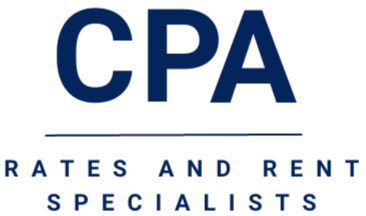VOA to be Scrapped: What This Means for Your Business
- peterw022
- May 7
- 3 min read
Updated: May 8

In a significant shake-up, the government has announced that the Valuation Office Agency (VOA) will be dissolved and absorbed into HMRC by April 2026. Presented as part of a broader “efficiency drive,” this marks a major shift in how business rates and property valuations will be administered across the UK.
The restructure could bring further complexity and reduced transparency to a system that is already under strain. Businesses across the country may face more ambiguity, red tape, and the loss of an important check-and-balance within the rating system.
At Commercial Property Advisors (CPA), we’re watching this transition closely. The VOA has historically functioned as a relatively impartial arbiter in the valuation process. Its integration into HMRC, a body tasked with tax collection, raises concerns about potential conflicts of interest and politically influenced assessments. What was once a separate oversight body may now be absorbed into a structure where revenue generation is the primary objective, and it remains unclear what safeguards will be put in place to protect ratepayers.
We believe this restructuring is not an isolated event, but rather a calculated move aligned with the rollout of Duty to Notify. By consolidating valuation and tax collection under one roof, the government appears to be streamlining enforcement rather than simplifying the process for ratepayers. This shift may place even greater pressure on property owners and tenants already navigating the demands of Duty to Notify, along with the complexities of the Check, Challenge, and Appeal (CCA) system. Without expert representation, these changes could leave many vulnerable to errors, delays, inflated liabilities and penalties.
“Absorbing the VOA into HMRC effectively removes an already fragile layer of independence from the rating system,” says Louis Mott, MRICS, Senior Surveyor at CPA. “This change underscores the critical importance of evidence-backed representation, because once the appeal process becomes more centralised, it’s likely to become even harder to challenge decisions. The consequences could be long-term and costly for ratepayers who are unprepared.”
How could this affect your business?
Greater risk of unfair or unchecked valuations With oversight shifting to HMRC, the potential for biased or overly aggressive assessments may increase—especially without an independent body to balance decisions.
Less clarity around appeals The integration raises questions about how the Check, Challenge, Appeal (CCA) process will be managed, potentially leading to confusion and slower resolutions.
Increased administrative burden Businesses may face more red tape, reporting requirements, and compliance challenges as systems merge and new protocols are introduced.
How CPA can help
As RICS-regulated professionals specialising in business rates, our team is already preparing for the implications of this reform. We combine extensive market experience with proprietary datasets to deliver advice you can trust—and results that make a difference.
Here’s how we can support your business through this transition:
Pre-emptive Review of Property Valuations
We’ll review your current rateable values against our database of over 2.7 million commercial properties to identify any discrepancies or overvaluations before the system changes.
Strategic Appeal Planning With over 2,700 properties already reviewed and more than £21 million saved for clients, we’ll help you formulate appeal strategies aligned to your business needs and the evolving HMRC oversight.
Documentation Audit We'll help ensure your leases, accounts, and internal references to VOA processes are up-to-date and reflect the incoming structural changes.
Compliance Guidance From Duty to Notify to CCA, our surveyors can guide you through every statutory requirement to avoid penalties or missed opportunities.
No Saving, No Fee Guarantee Our fee is tied only to the savings we achieve.
Direct Representation When the appeals process becomes more centralised and potentially less accessible, we’ll be there to advocate on your behalf with the full backing of RICS-regulated expertise.
This transition brings uncertainty—but also an opportunity to futureproof your business against long-term costs and inefficiencies.
Contact us for a no-obligation consultation and let's ensure you’re prepared for what’s next.



